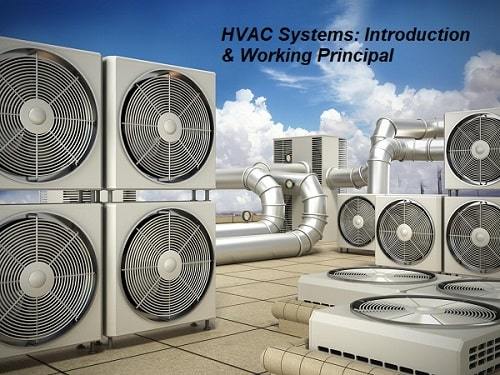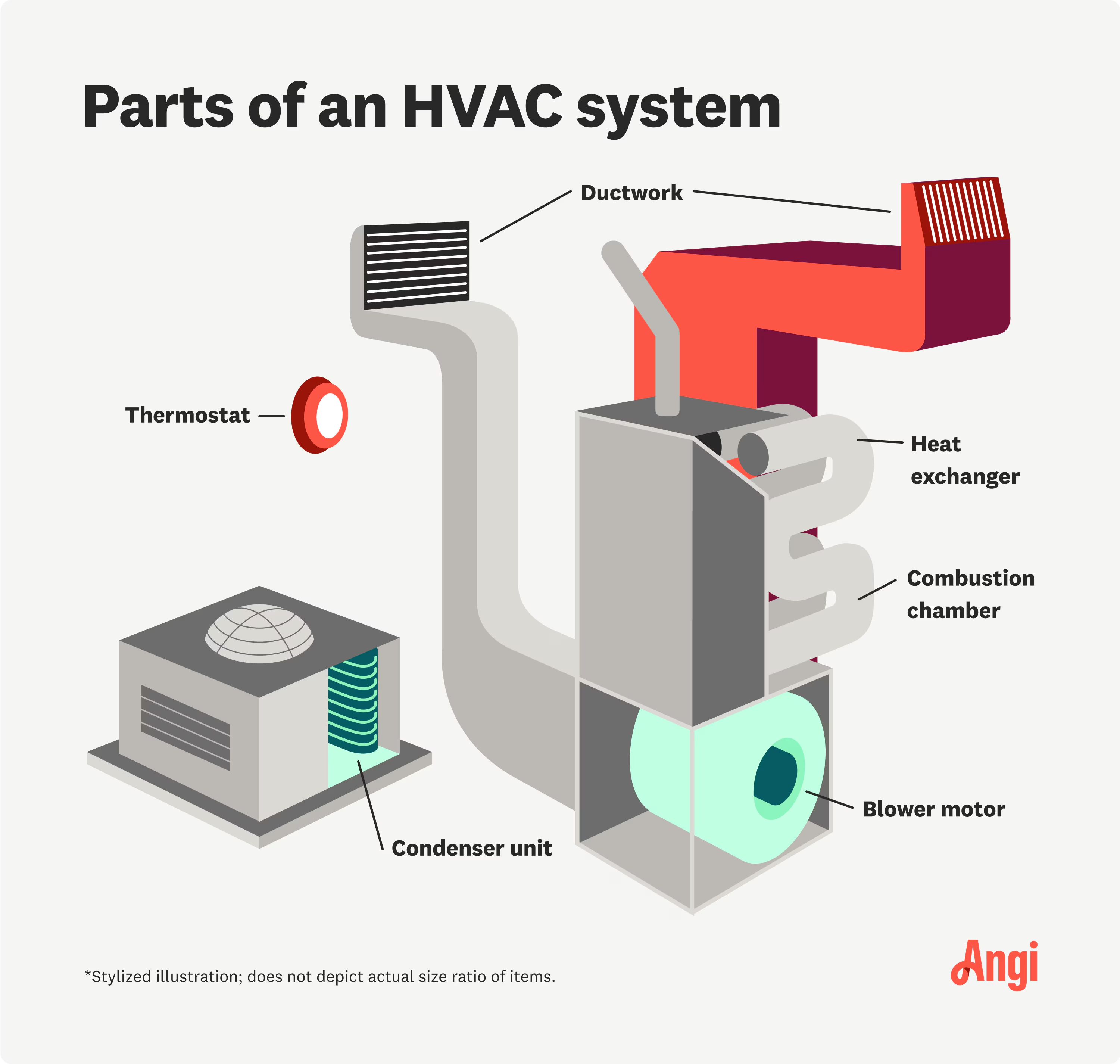Commercial HVAC Repair to Keep Your Company Running Efficiently
Commercial HVAC Repair to Keep Your Company Running Efficiently
Blog Article
A Thorough Appearance at Heating And Cooling Services and Their Impact on Power Effectiveness and Expense Cost Savings
The function of a/c services in enhancing energy effectiveness and accomplishing price financial savings is more essential than ever before, as businesses and house owners seek sustainable solutions in a progressively eco-conscious globe. With technical improvements like smart thermostats and high-efficiency components, the capacity for maximizing system performance is huge. Yet, the true effect of these advancements depends largely on routine upkeep and aggressive concern monitoring. As we check out the detailed partnership between cooling and heating systems and operational prices, including the change in the direction of eco-friendly alternatives, the inquiry emerges: how can these approaches be efficiently implemented to make the most of both financial and environmental benefits?

Importance of A/c Solutions
HVAC systems are a crucial element of modern buildings, playing a critical function in keeping healthy and comfy indoor environments. These systems, including air, air flow, and home heating conditioning, are important for controling temperature, moisture, and air high quality, thus making certain the wellness of occupants. Effective heating and cooling systems add substantially to creating an optimal indoor environment, which is vital for both household and industrial rooms.
In industrial structures, a/c systems are essential to supplying a efficient and safe atmosphere. By managing interior environment problems, these systems help avoid the growth of mold and mildew and the spread of airborne pollutants, thus securing the health of consumers and staff members. In addition, in property setups, cooling and heating systems boost living conditions by providing regular thermal convenience and boosting indoor air quality, which is important for general health.
Furthermore, the design and maintenance of cooling and heating systems have a direct effect on energy intake and operational expenses. Effectively created and maintained systems can significantly decrease power usage, causing lowered energy costs and a smaller carbon impact. The efficiency of these systems thus plays a vital duty in advertising sustainability and power conservation within buildings, highlighting their relevance in the modern-day architectural landscape.
Developments in Cooling And Heating Modern Technology
Technology in a/c modern technology is reinventing the way structures handle interior climates, ushering in a brand-new age of efficiency and control. Current innovations have focused on optimizing power intake while improving customer comfort. One significant development is the integration of smart thermostats, which utilize man-made knowledge to find out occupancy patterns and change temperatures appropriately, minimizing unnecessary power usage.
Variable Cooling Agent Flow (VRF) systems represent one more significant leap forward. These systems enable accurate temperature control in various areas of a building, improving comfort and reducing power waste. VRF technology is especially beneficial for big business areas, offering versatility and scalability.
Furthermore, the introduction of Web of Things (IoT) gadgets has transformed HVAC systems into interconnected networks with the ability of real-time information collection and analysis. This connection enables predictive upkeep, guaranteeing systems run at peak efficiency and decreasing unexpected downtime.
In addition, improvements in products and layout, such as the use of high-efficiency coils and compressors, have boosted total system efficiency - Heating Contractor. The adoption of eco friendly cooling agents additionally highlights the industry's dedication to sustainability
These technical innovations are essential in lowering operational costs and ecological impact, establishing new criteria for developing climate administration.
Heating And Cooling Maintenance and Performance
Ensuring optimal performance of HVAC systems prolongs past technical advancements; it additionally hinges on efficient maintenance techniques. Normal upkeep is critical for maintaining effectiveness, decreasing energy consumption, and extending the life period of heating and cooling systems. The main objective is to ensure that all elements work at their peak capacity, thereby reducing power wastefulness and browse around this site keeping consistent indoor convenience degrees.
Regular upkeep tasks, such as cleaning or replacing air filters, checking refrigerant levels, and inspecting ductwork for leakages, are essential for avoiding unnecessary pressure read here on the system. Unclean or clogged up filters can block air movement, creating the system to work more difficult and take in even more power. Also, insufficient refrigerant degrees can minimize cooling efficiency, leading to greater functional expenses.
Additionally, routine evaluations by certified professionals can recognize potential concerns before they rise right into costly repair services or system failures. These inspections typically include inspecting electrical connections, calibrating thermostats, and making sure the general stability of the heating and cooling system. By attending to minor issues early, organizations and house owners can prevent unanticipated breakdowns and enhance energy effectiveness.
Economical Cooling And Heating Solutions
For those seeking to obtain the most out of their ventilation, home heating, and air conditioning systems without breaking the financial institution, exploring cost-effective heating and cooling services can make a considerable difference. One instant step is to purchase programmable thermostats, which permit customers to set certain temperature levels for different times of the day, maximizing energy usage and minimizing unneeded consumption. By automating temperature modifications, house owners can accomplish considerable savings on energy bills.
Routine maintenance is one more vital component of cost-efficient a/c management. Making certain that filters are cleansed or changed regularly, ductwork is sealed, and devices are serviced by professionals can stop costly repairs and improve system durability. Preventative upkeep not just maintains system performance however also assists in preventing unforeseen breakdowns that can result in expensive emergency situation fixings.
Furthermore, retrofitting existing systems with energy-efficient parts, such as variable speed electric motors or high-efficiency compressors, can be a prudent financial investment. These upgrades boost operational performance, minimize power use, and can frequently be carried out at a portion of the cost of a full system replacement.
Ecological Effect Decrease
Reducing the ecological influence of Heating and cooling systems is crucial in today's search of sustainable living. A/c systems are considerable factors to power consumption, accounting for nearly 40% of energy usage in business structures.
Technical innovations in heating and cooling layout and operation, consisting of the assimilation of smart thermostats and energy-efficient heat pumps, are essential in decreasing carbon footprints. These innovations permit for enhanced energy usage, reducing waste and enhancing overall system efficiency. Furthermore, adopting regular upkeep practices makes my company sure a/c systems run at peak performance, additional curtailing unneeded power intake.
Moreover, using eco-friendly cooling agents is essential, as typical refrigerants, like CFCs and HCFCs, have actually been terminated due to their ozone-depleting buildings. Modern alternatives, such as hydrofluoroolefins (HFOs), deal minimized environmental risks, aligning with international ecological protocols. By accepting these lasting techniques, a/c services can play a transformative function in reducing ecological effects, advertising power effectiveness, and promoting an extra lasting future.
Final Thought

Furthermore, the layout and maintenance of HVAC systems have a straight effect on energy usage and operational costs. Normal maintenance is crucial for sustaining efficiency, decreasing energy usage, and expanding the life span of Cooling and heating systems. A/c systems are considerable factors to power consumption, accounting for virtually 40% of power usage in industrial buildings. Additionally, adopting routine upkeep practices guarantees HVAC systems run at peak effectiveness, more curtailing unneeded power consumption.
The shift to ecologically pleasant A/c systems even more reduces operational expenses and promotes sustainability. (Heating Contractor)
Report this page